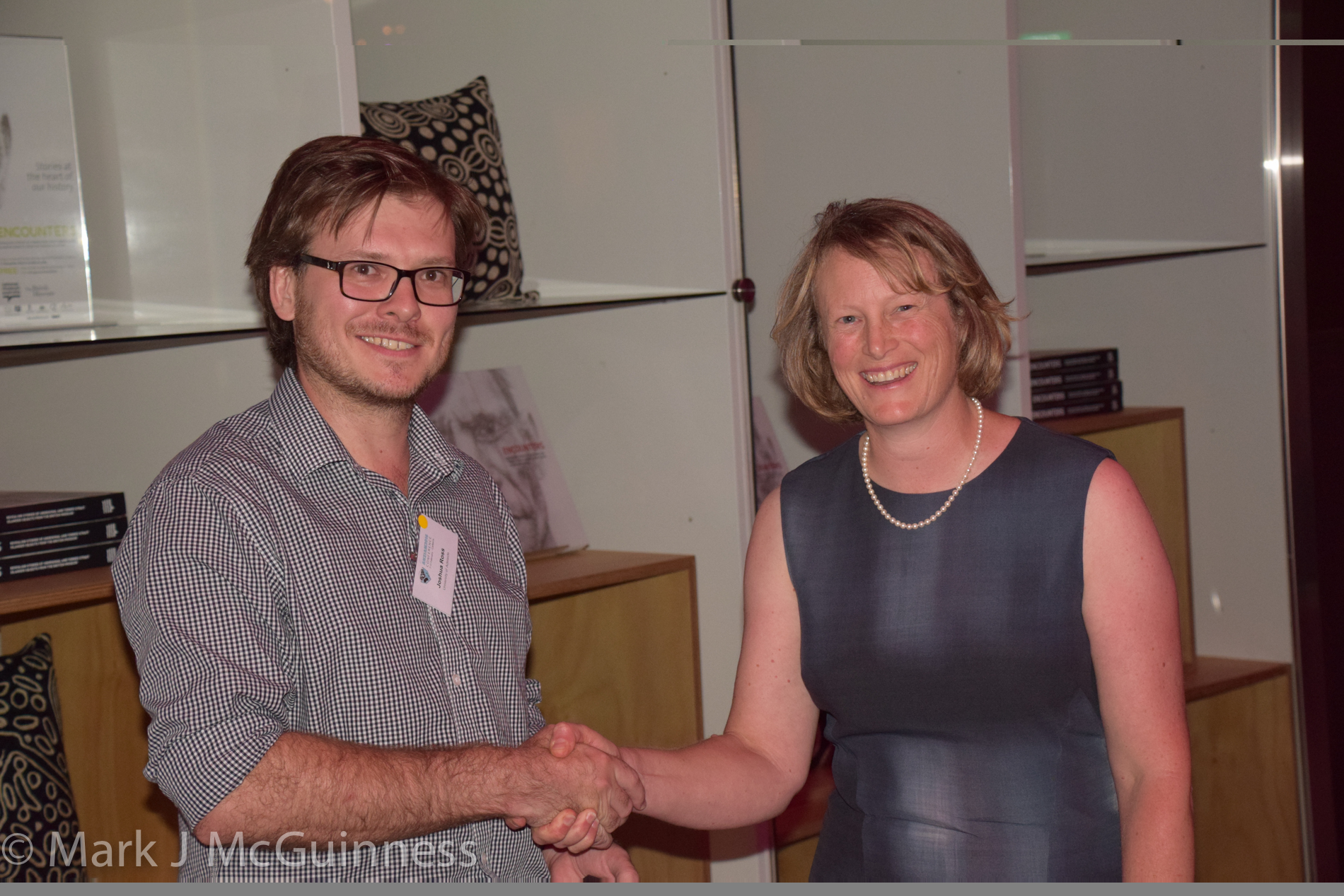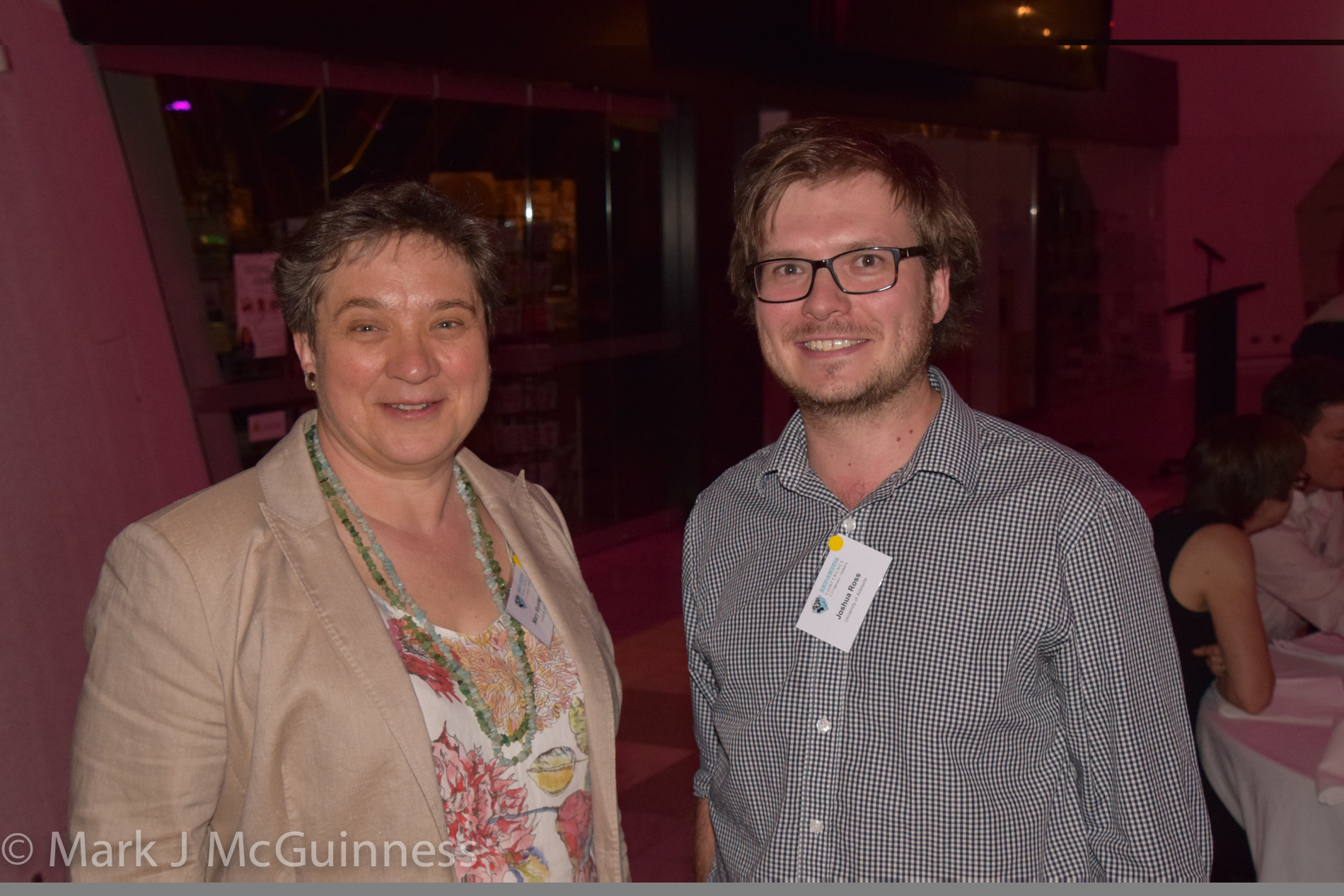The 2016 JH Michell Medal
 .
.
The J.H. Michell Medal is awarded by ANZIAM in honour of John Henry Michell to an outstanding new researcher, within 10 years of their PhD, who has carried out distinguished research in applied and/or industrial mathematics, and where a significant proportion of the research work has been carried out in Australia and/or New Zealand.
The committee (Harvi Sidhu, Matthew Simpson and Yvonne Stokes) is unanimous in recommending that the 2016 J.HMichell Medal be awarded to Associate Professor Joshua Ross from the University of Adelaide. Joshua has made significant contributions to methodology in Applied Mathematics and, through its application, to conservation biology and public health policy.
Joshua completed his undergraduate and postgraduate education at the University of Queensland: a Bachelor of Arts (Economics) in 2002, a Bachelor of Mathematics & Statistics in 2003, a Graduate Certificate in Higher Education in 2006 and his PhD in Mathematics in 2007.
After a year as a post-doctoral research fellow in the Mathematics Institute, The University of Warwick, Joshua went to the University of Cambridge as a Zukerman Junior Research Fellow at King's College (October 2007 — March 2010). In March 2010 he joined the School of Mathematical Sciences, The University of Adelaide, as a Lecturer. He was promoted to Senior Lecturer in 2013 and to Associate Professor in 2015.
Joshua has accrued an impressive list of accomplishments. Over the last 5 years he has had three successful ARC Discovery Projects (one as a sole applicant), a Royal Society International Exchanges Scheme grant, and an NHMRC grant for the Centre of Research Excellence in Policy Relevant Infectious Disease Simulation and Mathematical Modelling. He was awarded an ARC Future Fellowship for 2013--17. He is also a contributor to the Data to Decisions Cooperative Research Centre established in 2014 through which he has a project grant. In 2013 he received an Australian Institute of Policy and Science Young Tall Poppy Award.
The success Joshua has had with grants and awards bears witness to the quality and impact of his research. Joshua has a strong publication record of 45 journal articles, 7 as sole author, and he has papers in a number of high-quality journals including The Proceedings of the Royal Society A, The Journal of Theoretical Biology and Global Change Biology. In 2006 he had a sole-authored paper in Science. Scopus reports 290 citations of his work in separate documents. A paper from his first post-doctoral position was selected as a "Technological Advance'' by the Faculty of 1000 Biology — a panel of over 2300 world leading biological researchers who identify research of other scientists which they believe to be particularly interesting or important.
Joshua's work, from his PhD and onwards, is noted for novel methodologies. The four key papers (of ten) arising from his PhD studies have collectively attracted 88 citations to date. Highlights from his work as a Zukerman Junior Research Fellow include:
- the fusing of network moment-closure methods with the theory of diffusion approximation to establish the first analytical understanding of the impact of network structure and stochasticity in disease dynamics, in the process providing a probabilistic explanation of the standard pair moment-closure approximation which is widely used in mathematical epidemiology, and
- the development of a suite of novel methods for the efficient evaluation of several epidemiologically relevant quantities for stochastic households models.
Joshua's many achievements include supervision to completion of a PhD student and two MPhil students, and a number of government consultancies.
He is, clearly, an outstanding researcher and a worthy recipient of the J.H. Michell Medal.
Congratulations Joshua!



